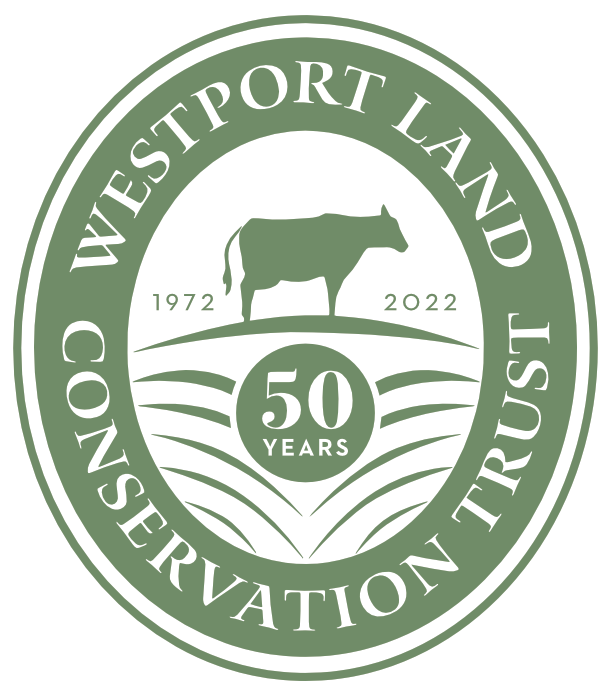
Aerial photography reveals the extent of forest die back resulting from invasive winter moth defoliation. Photo of the lower east branch of the Westport River by Greg Stone.
Did you know that each year, an average Massachusetts resident uses the equivalent amount of wood produced from one tree that is 18 inch thick and 100 foot tall? Did you also know that Massachusetts imports 98% of the wood it consumes annually? Furthermore, what does this have to do with the Westport Land Conservation Trust (WLCT)?
WLCT has protected many special natural landscapes across Westport. WLCT owns over 1,400 acres of land and manages 12 miles of trails for passive recreation. In recent years, WLCT has devoted resources to caring for that land. That care includes maintaining trails and parking lots, but it also can include identifying critical wildlife habitat, and taking a more active role in protecting that habitat where appropriate.
Ecologically sound forest management is one tool that can protect habitat and promote biodiversity. A forest habitat generally needs trees of varying ages and size to support native plants and animals. Yet, most forests in Westport are even-aged; they were formed during the second period of farm abandonment in the early 1900’s. These even aged forests can be more susceptible to disease and invasive species.
One such example is at Dunham’s Brook Conservation Area off of Main Road. A portion of this property was almost entirely defoliated during the 2015 and 2016 winter moth infestations, resulting in significant loss of trees. With assistance from a local forester and MassWildlife’s Habitat Management and Improvement Grant Program, WLCT created a forest management plan that included selectively cutting diseased and dying trees. By cutting those trees, we will promote the growth of younger trees that have a greater resiliency to winter moth.
When the trees are cut, sometimes they are kept in place, and sometimes the wood is removed. At Dunham’s Brook Conservation Area, many of the diseased and dead hardwood trees were able to be re-purposed for firewood by partnering with Simply Local Wood, a local timber company, to take the logs, sort and salvage as much as possible.
If you or your family are interested in sourcing sustainability harvested and local firewood, then give our friends at Simply Local Wood in Fall River a call to learn more.
Check out more statistics about Massachusetts forests by visiting UMass Amherst’s website.

